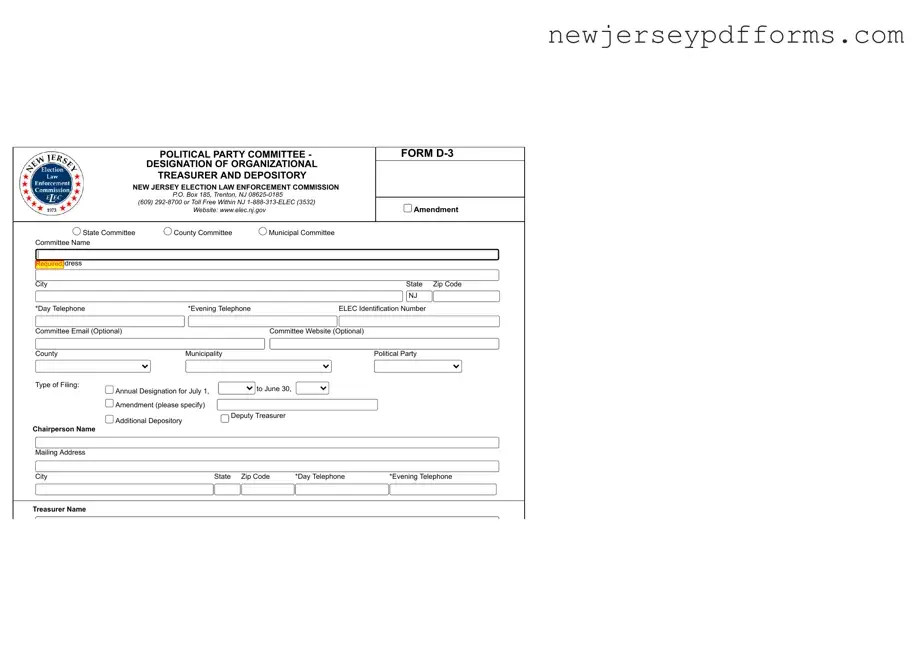The New Jersey D-3 form is similar to the Federal Election Commission (FEC) Form 1, which serves as a Statement of Organization for political committees at the federal level. Like the D-3, the FEC Form 1 requires committees to provide essential information about their structure, including the names of key officers and the designated treasurer. Both forms ensure that the respective election commissions have a clear understanding of who is managing the committee's financial activities. The urgency of filing these forms accurately cannot be overstated, as they are crucial for compliance with election laws and maintaining transparency in political financing.
Another document that mirrors the D-3 is the New Jersey D-1 form, which is used for the designation of a candidate committee. Similar to the D-3, the D-1 requires the identification of a treasurer and a depository for campaign funds. This form also emphasizes the importance of transparency and accountability in campaign financing. The D-1 form must be filed before a candidate can officially begin fundraising, highlighting the critical nature of timely submissions in the electoral process.
The FEC Form 3 is another comparable document, functioning as a Report of Receipts and Disbursements for federal political committees. Like the D-3, it requires detailed reporting of financial transactions, including contributions received and expenditures made. Both forms aim to provide a clear picture of a committee's financial health and activities, ensuring that all financial dealings are documented and accessible to the public. The need for accuracy in these reports is paramount, as discrepancies can lead to serious legal repercussions.
For anyone involved in the formation of a limited liability company, understanding the essential components of an Operating Agreement is critical. This document details the internal governance of the LLC, laying out the rights and responsibilities of members to prevent misunderstandings. Resources such as topformsonline.com/operating-agreement provide valuable guidance on how to craft an effective Operating Agreement that aligns with legal requirements and ensures smooth business operations.
Lastly, the New Jersey D-4 form is relevant, as it is used to report contributions and expenditures by political committees. This document shares similarities with the D-3 in that it requires detailed financial disclosures, including the identification of contributors and the amounts received. Both forms are designed to promote transparency and accountability in political fundraising and spending. Timely and accurate completion of the D-4 is essential for compliance with New Jersey election laws, reflecting the ongoing commitment to ethical campaign practices.

